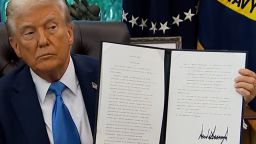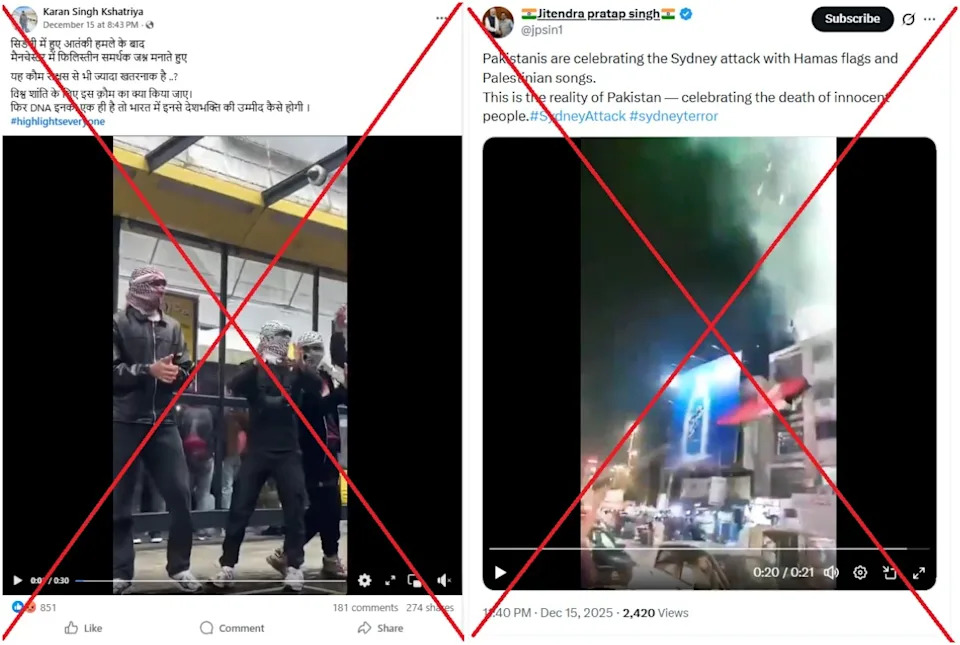Trump’s $100K Visa Fee Sparks Panic Among Indian Workers

UPDATE: A wave of panic has erupted among Indian communities and the global tech industry following President Donald Trump’s sudden announcement of a $100,000 fee for the H-1B visa, the most sought-after work visa for skilled professionals. This shocking directive, revealed on September 29, 2023, has left many H-1B holders in a state of confusion and fear.
Onboard an Emirates flight from San Francisco to Dubai, passengers faced a three-hour delay as they grappled with the implications of the new visa fee. Videos from the scene show the captain attempting to reassure anxious travelers, stating, “Due to the current circumstances, obviously they’re unprecedented for us here at Emirates.” Masud Rana, a passenger who filmed the chaos, described the situation as “complete chaos,” highlighting the distress particularly among Indian travelers.
The White House claims this visa adjustment is a necessary step to combat what they term “systemic abuse” of the program, aiming to promote American job growth. However, this move threatens to disrupt the careers of hundreds of thousands of Indian professionals who rely on the H-1B visa, which has historically served as a vital entry point into the U.S. workforce.
According to the Indian Ministry of External Affairs, the visa fee increase could lead to “humanitarian consequences” for families affected by this legislation. The ministry expressed hope that the U.S. authorities would address these disruptions appropriately.
While the White House clarified that the new fee applies only to new H-1B applications, the implications are profound. The H-1B visa has been instrumental for many of India’s brightest talents, contributing significantly to the U.S. innovation landscape. Notable leaders from Indian descent, such as Satya Nadella of Microsoft and Sundar Pichai of Alphabet, exemplify the success facilitated by this program.
The National Association of Software and Service Companies (NASSCOM) has warned that the visa fee hike could have severe repercussions on the U.S. innovation ecosystem. Data from the U.S. Citizenship and Immigration Services indicates that Amazon was the largest beneficiary of H-1B visas for the 2025 fiscal year, securing approximately 10,000 visas. The second-largest recipient, Tata Consultancy Services (TCS), received over 5,500 visas. Under the new fee structure, this could mean a staggering financial burden of $1 billion for Amazon and $550 million for TCS annually.
Experts believe these hefty costs will not be absorbed easily by IT service providers. Analysts from Nomura predict that this fee will accelerate a shift toward offshoring and automation, leading to increased hiring in nearby locations like Mexico and Canada. The H-1B visa may soon be reserved for only the most critical roles, intensifying competition for available positions.
This policy shift is part of the Trump administration’s broader strategy to exert economic pressure on India, following the imposition of a 50% tariff on Indian goods last month. While this move has drawn criticism, some economists argue it may inadvertently bolster India’s tech sector by encouraging top talent to return home, potentially transforming India into a more formidable global innovation hub.
Mumbai resident Ashok Gupta expressed a sentiment shared by many: “It is a loss for America, not India. Those who cannot afford to pay that much will open their offices here.”
As this situation unfolds, the impact on skilled professionals and tech firms remains to be seen. The urgency of this developing story is palpable, and stakeholders are closely monitoring the changes that could redefine the landscape of skilled immigration in the United States.
Stay tuned for more updates as this story develops.






